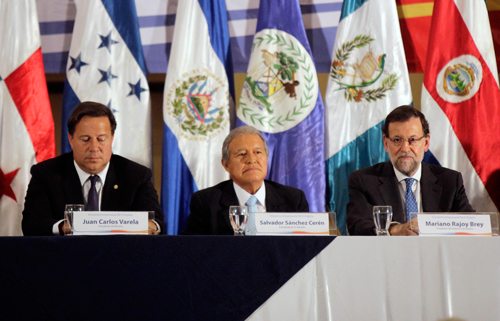If the agreement on forming a government in Spain is delayed, Spain would attend international appointment with an acting government.
The Diplomat. Madrid
Spanish foreign policy may find itself handicapped during the first half of the year if the political parties do not manage to reach an agreement on the formation of a new Government. Government sources told The Diplomat that negotiations with other countries to arrange bilateral visits are on hold.
The only scenario that would enable the normal rhythm of overseas work to be maintained would be the one that opens with the re-election of Mariano Rajoy as the Spanish president, following an agreement with the PSOE and Ciudadanos. If these two parties were to abstain, Rajoy could be returned on the second round of voting, with a simple majority, more or less at the end of this month.
Any other option would delay the formation of a new Government and halt the overseas promotion of Spain which would attend previously arranged international appointment with an acting government, something which reflects badly on the importance of the weight of a country when making decisions.
This would be the position, for example, at an International Conference on Syria in London, on 4 February and, even more so, at the European Summit on 18 and 19 February in Brussels. This second one will be discussing the demands of the British Prime Minister, David Cameron, which must be met, in order for him to be able to hold a referendum on the United kingdom remaining in the EU and preventing the so-called Brexit.
If the agreement on forming a government in Spain is delayed or become impossible and leads to the call for new elections in May, Rajoy would also have to attend the spring European Council, on 18 and 19 March, as acting president, and even the Nuclear Security Summit in Washington arranged for 31 March and 1 April.
[hr style=”single”]
Negotiations on arranging bilateral visits, up in the air
[hr style=”single”]
Travel of a bilateral nature and visits by other Spanish dignitaries will be postponed until there is a new government.
In the meantime, the King will maintain his agenda which, in this first quarter of the year, includes two State Visits, although the Royal Household are following events very closely. The first of these visits –to Saudi Arabia from 16 to 18 February- is seen to be threatened by not only by the delicate situation as a result of the crisis with Iran but because, in the event that Rajoy is unable to form a government, it would be advisable for King Felipe VI, as invested By the Spanish Constitution, to remain in Spain to continue consultations with the parties and eventually to ask Pedro Sanchez to endeavour to form a government. .
Even the planned State Visit to the United Kingdom, from 8 to 10 March could find itself affected if Spain is involved in holding new general elections.







